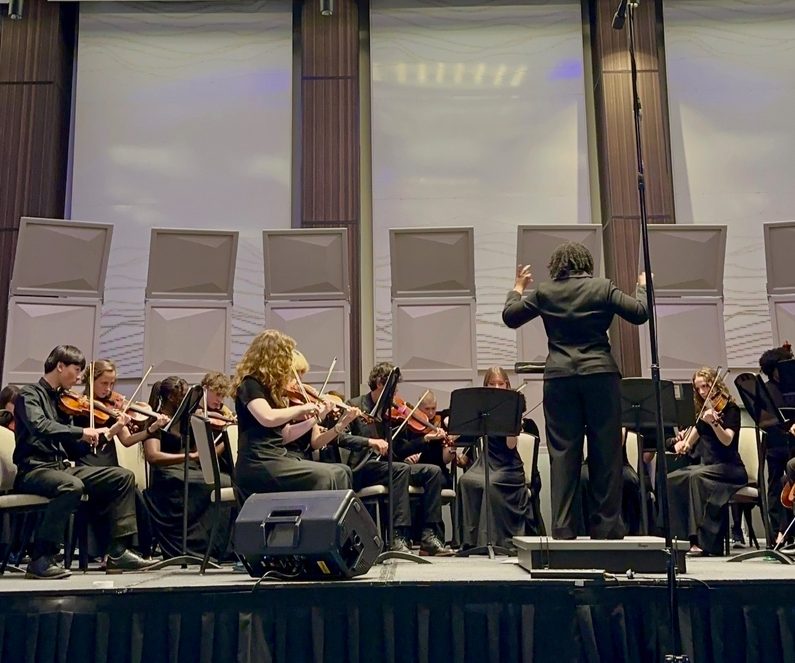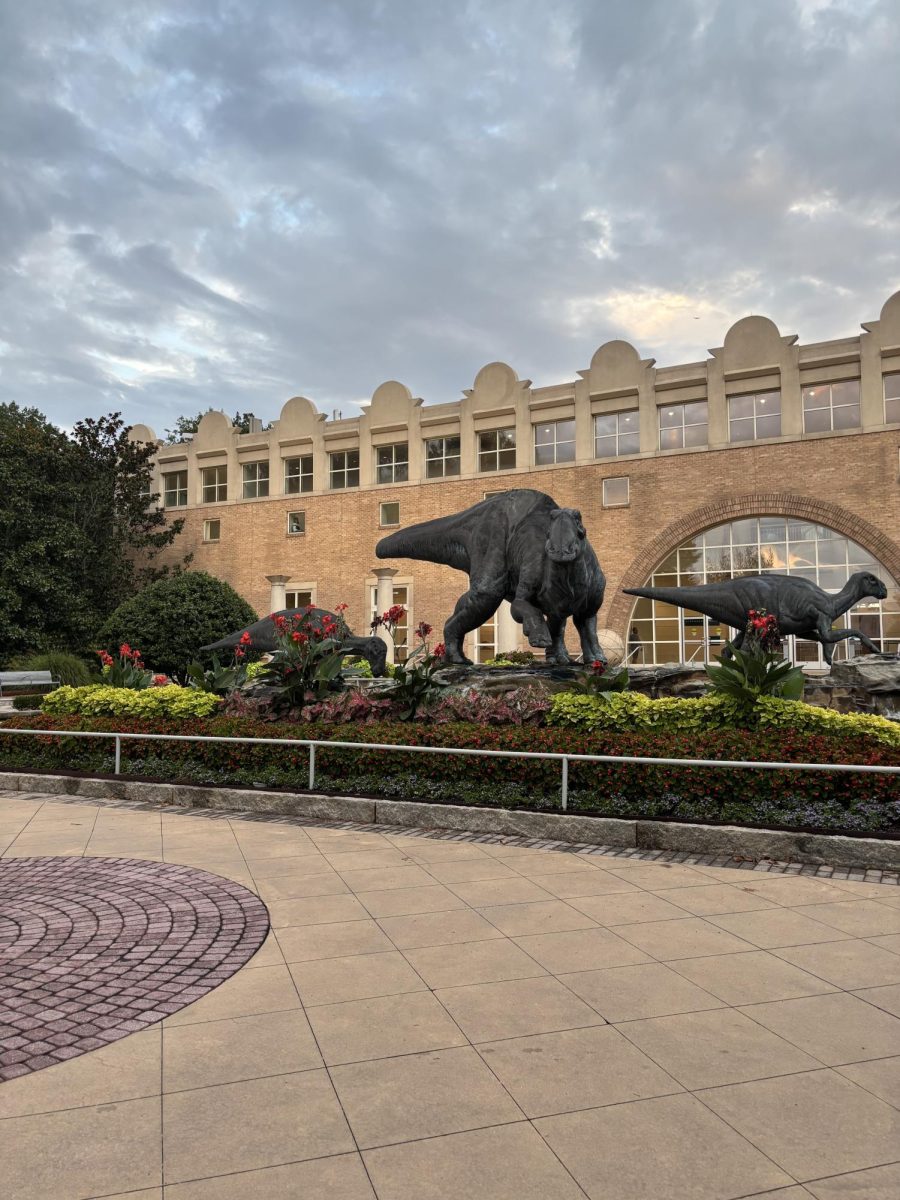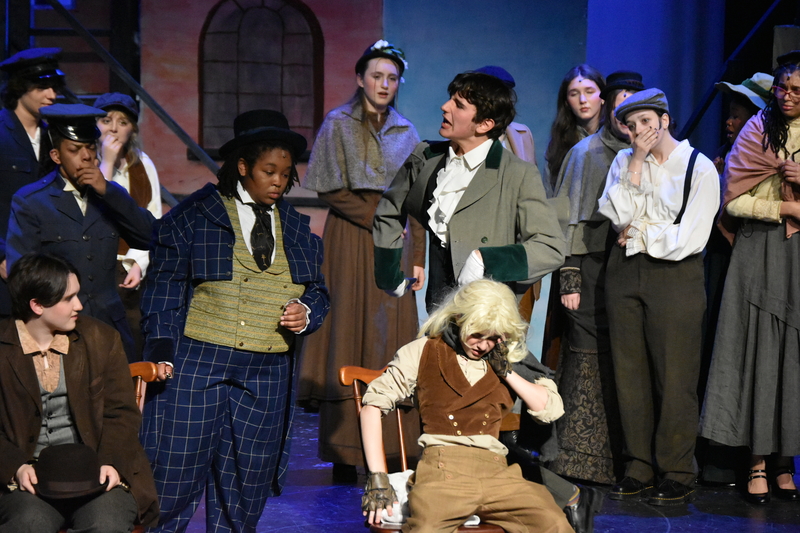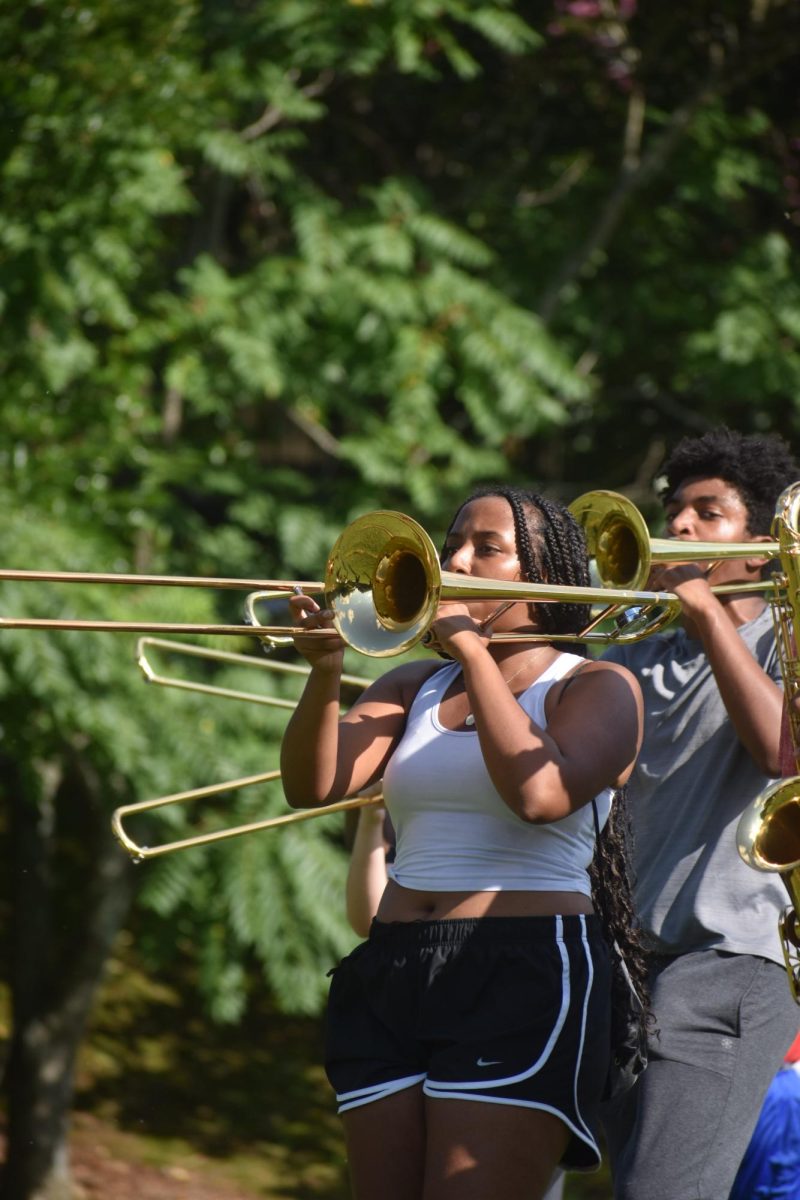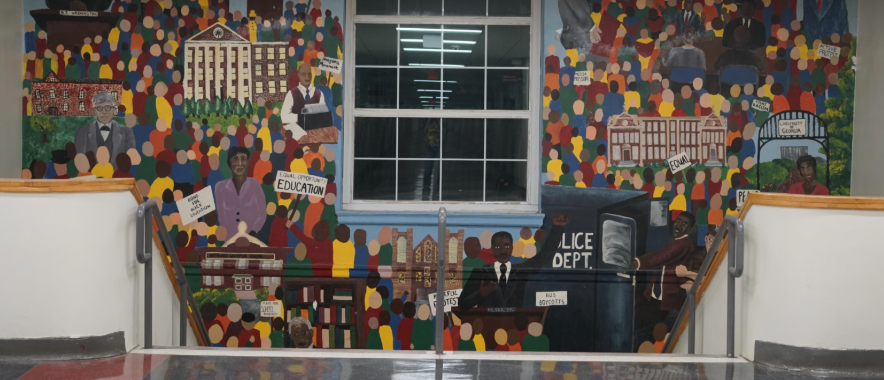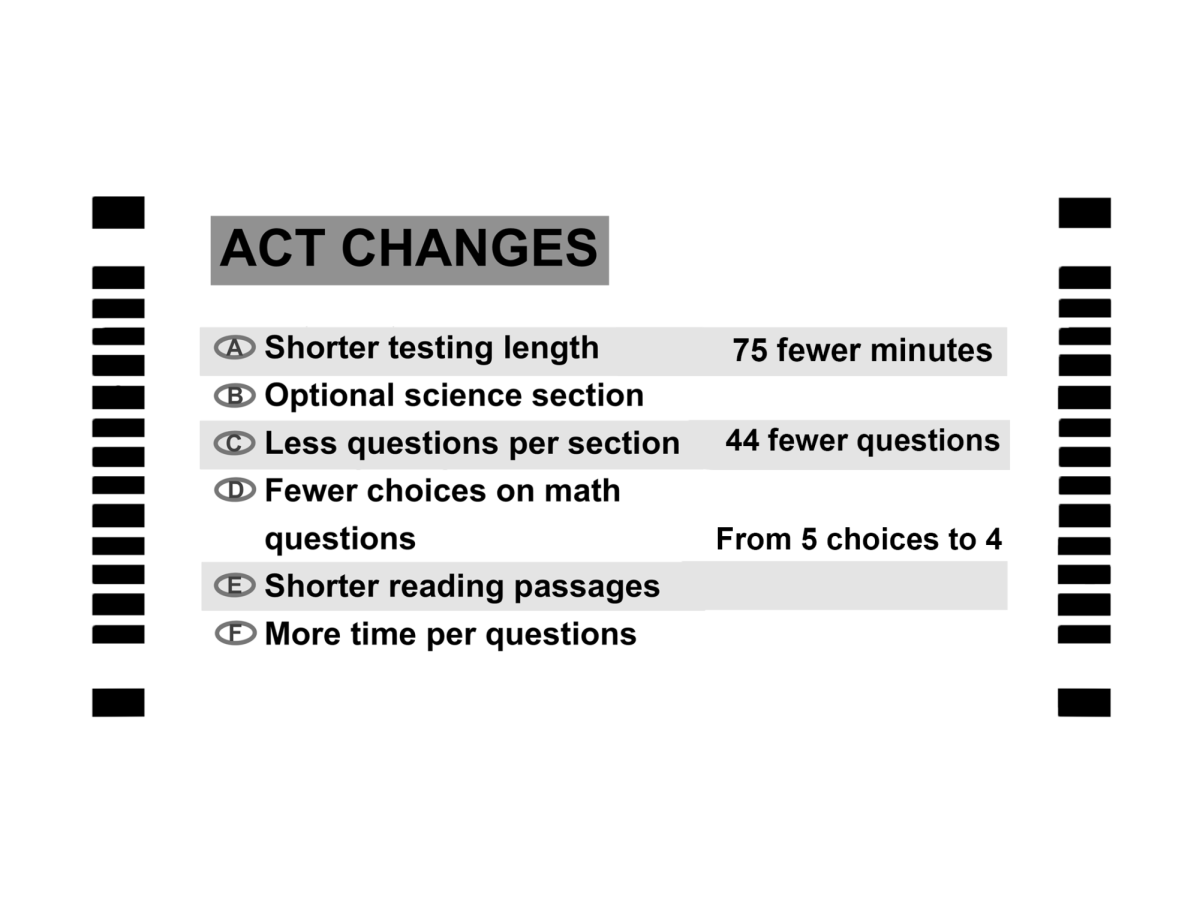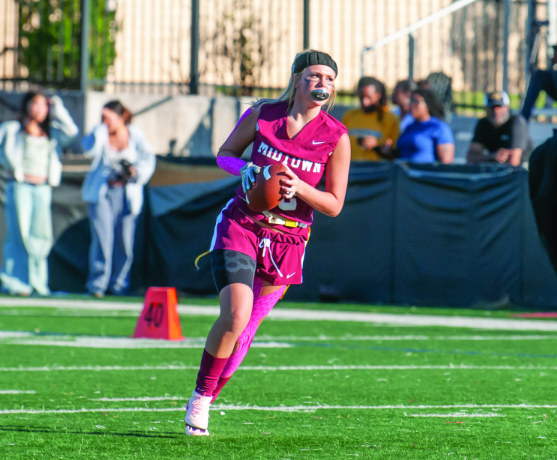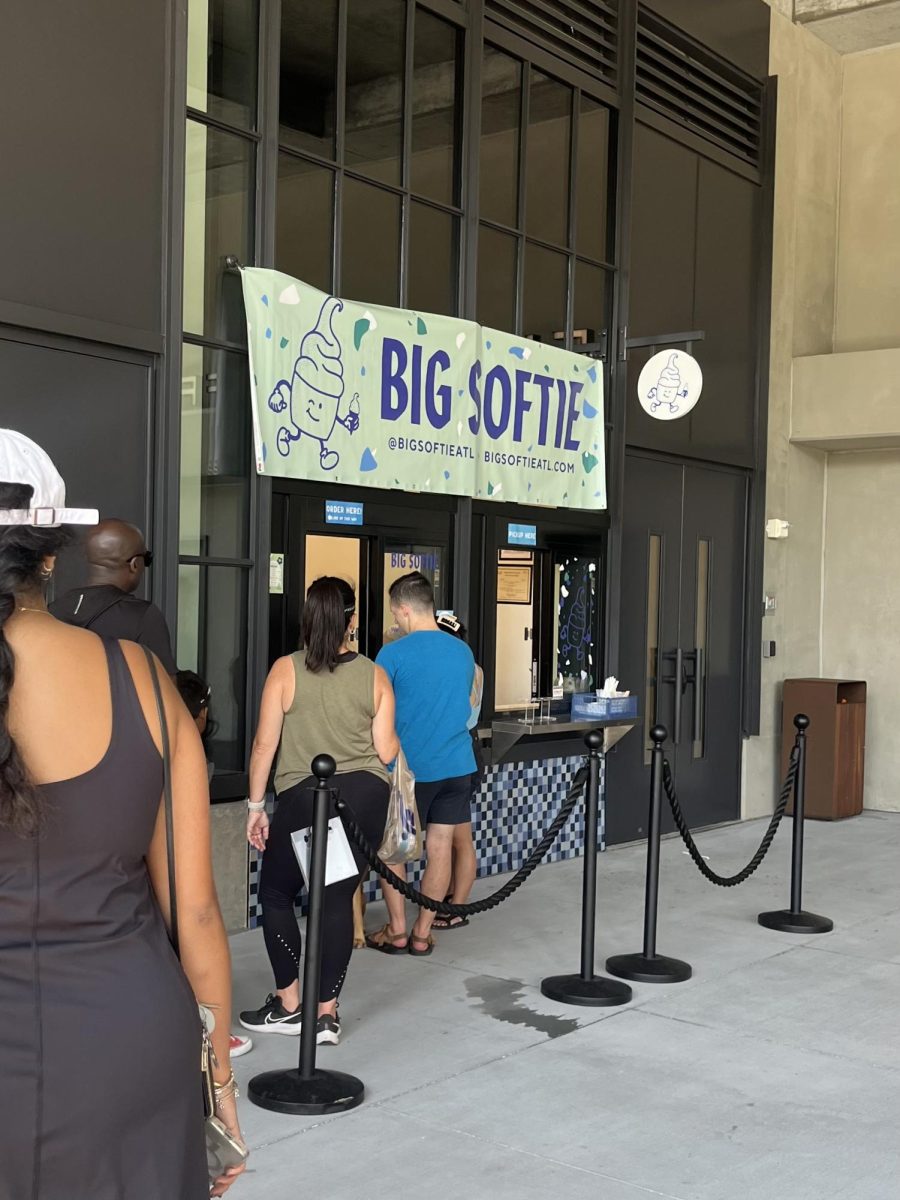Midtown’s Mastery Orchestra class made their second appearance since the COVID-19 pandemic at the American String Teachers Association (ASTA) on March 20.
With over 6,000 members, ASTA is a national conference for orchestra classes from across the nation that has been running for over 75 years. The event was hosted in Atlanta this year. In addition to providing students with experience and knowledge about orchestra, ASTA gives orchestra teachers access to networking opportunities and performance evaluations.
Orchestra director Krissi Davis started working at Midtown in 2018, which was the last year that Midtown attended ASTA.
“I decided to go this year because the orchestra has been working really hard to get back to our pre-pandemic performance levels,” Davis said. “This was our way of proving that we have recovered and are better than ever.”
For many students, the atmosphere at ASTA was an exciting and immersive experience, filled with energy from other school orchestras, teachers and guests from around the country. Sophomore Victoria Grunberg-Mahecha, who plays the cello for the Mastery Orchestra class, said she enjoyed the environment created at the event.
“The atmosphere at ASTA was very welcoming,” Grunberg-Mahecha said. “There were people everywhere — volunteers, guests and other orchestras — making the environment feel so full and lively. Everyone was a bit nervous, but more excited than anything.”
While junior Eva Isakov has played the cello for eight years, this is her first year playing in the mastery class. Despite being unable to attend ASTA this year, Isakov said she is proud of the amount of work the orchestra has put in for this event.
“My class and I have spent hours practicing in the classroom and at home to prepare our program for the audience at ASTA,” Isakov said. “This event is very important to our orchestra, and my favorite thing would’ve been to perform our pieces for some of the conductors themselves. I would’ve loved to bring their musical works to life.”
Some students find the judges’ comments are just as important as the performance itself since they offer important insights that help students improve. This was particularly true for violinist and senior Melina Welch, who said she sees the judges’ feedback as a crucial component of ASTA.
“I was excited to get our comments back from the judges to see what we need to work on,” Welch said. “Many people wouldn’t agree, but you can’t get better if you don’t know what you need to change.”
As she looks back on her ASTA preparation experience, Grunberg-Mahecha said the event helped her understand what it takes to play at a national level and the importance of each practice.
“This event really showed me the level of preparation and commitment needed to perform at a national level,” Grunberg-Mahecha said. “It made me realize that every rehearsal and every note we play is about improving and growing together, and it’s all worth it for these opportunities.”
Playing in front of a prestigious audience can be a high-pressure experience, but Isakov said Davis has conducted the orchestra well.
“I’m sure I can speak for most of my class when I say that performing in front of large audiences is always very stressful,” Isakov said. “You always feel pressured to play every note and every rhythm correctly. However, I think Ms. Davis has prepared us very well to perform under pressure, and most importantly to enjoy the experience.”
To select the pieces the orchestra played, Davis said she pays careful attention to the pieces chosen and who they are composed by.
“One of the criteria that I especially liked was to make sure that we picked pieces composed by women or people from underrepresented backgrounds,” Davis said. “I think that it is important to highlight music from all backgrounds and cultures, and not just classical music. I’m proud of the program we played because it was rigorous and represented many different genres.”
To improve their performance, students undertook leadership positions in addition to months of training. Davis said student guidance and support of one another was just as important to success as individual effort.
“To prepare for this performance, students really had to take individual accountability for their practice,” Davis said. “We are only as good as our weakest player. Violinists extended the range on their instruments and started playing in positions that they really were not used to before. I also liked how rehearsals evolved and section leaders really stepped up and provided feedback for their sections to improve. It wasn’t just me pointing out what needed to be improved.”
Davis said she is happy with the orchestra’s performance at ASTA and is optimistic about the future.
“I’m proud of the growth of the orchestra this year and look forward to building on it next year,” Davis said. “This experience will help to build Midtown’s reputation not only as one of the best orchestra programs in Atlanta Public Schools, but also the state of Georgia. Hopefully, this performance can lead to other opportunities on the national level.”

